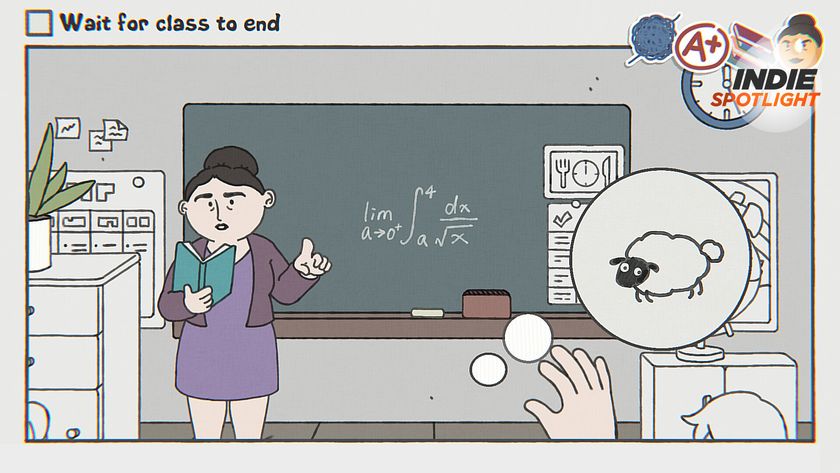8 reasons social gamings gold rush is drying up
And why that's a good thing

Coming back to earth
Facebook was a gaming gold rush. New companies like Zynga struck it rich, and big guys like Electronic Arts quickly dispatched their own prospecting business units to get in on the action. Games were made, claims were jumped, and everyone seemed to be making money from gamers well outside the hardcore fold.
The overnight industry got a serious reality check after Zynga went public, and its stock price fell almost as quickly as its executive roster. Now social's growth is leveling off, and its developers are diversifying. What seemed to be the Next Big Thing in video games is just another way to play games. Why'd the gravy train ever have to slow down, and why's that likely good for us and developers?

1. Facebook injected a viral app vaccine
Games on Facebook used to be like beggars in Assassin's Creed. As soon as users logged on, ten games would claw at their newsfeeds, jostling for position and begging for attention. Automatic updates from infected, err, interested friends were the primary way for the games to spread, since Facebook didn't have much of a central repository for trying new apps.
All that changed this summer, when Facebook introduced the App Center and clamped down on how talkative apps could be. The App Center, much like the iOS App Store, is an all-in-one destination for Facebook's various diversions. It even prioritizes recent apps over established ones, giving new games a chance at the spotlight. Novelty, good ratings from users (and yes, whoever is highest grossing) started to matter more for discovery than who could shout the loudest on the most news feeds. (Editors Note: Shouting is easier than making a good game.)

2. Expectations are higher
Social games were a breeze to get into for developers because they were inexpensive to make. Much of their appeal lies in interacting with a player's pre-assembled list of friends. It may have more technical constraints than other gaming platforms, but a billion-strong market is attractive enough to overlook any flaws. To tap as many of those users as possible, the games were designed to be playable on just about anything with a mouse or trackpad--and that meant no fancy animations or demanding action segments.
But with such a low barrier to entry for creation, the social gaming market soon became crowded with contenders. Mafia Wars had slowly filling progress bars, so FarmVille anted up with colorful moving characters. FarmVille 2 even has--gasp--polygons! Competition grew for what was once an underserved market, and standing out meant spending more and working faster. There's no doubt the social games of today are worlds better than their predecessors, but more expense always means more risk and harder-earned profits.

3. Plagiarism is rampant
Cannibalism isn't just for the Donner party and remote tribes in Papua New Guinea. While "derivative design" has always been a part of the craft of games, Facebook titles earned a reputation for taking it to new depths. Electronic Arts and Zynga are just two of several parties currently locked in a mudslinging legal battle over the latter hewing a few pixels too close to The Sims Social with competitor The Ville. While the ruling could go either way, the wholesale Xerox-ing of aesthetics and mechanics is sadly common in the social space.
Before, there was little incentive to be original in social games, but no reason not to do as Zynga founder Mark Pincus puts it, "copy what they do and do it until you get their numbers." Hopefully the visibility of the no-holds barred legal battle will convince social game makers otherwise.

4. Mo' monetization gave players mo' problems
Social game creators had to make back their money somehow, but upfront expenses might turn away otherwise eager players. That's where microtransactions--social gamings lifeblood--came in. Smaller purchases throughout the life of a game can be a win-win: Players try it for free and if they like it, they put money into it, and if not, they don't lose a cent in finding out.
But many of the games didn't just limit content--they outright penalized those who refused to shell out. Fun game design is like an education, with players progressing as quickly as they can master the concepts. Most "free" social games were teachers on the take, and their textbook was the time value of money. It doesn't matter how well players do; at some point, theyll need to pay up or suffer through intentionally not-fun scenarios like waiting for an energy meter to refill or coins to pile up. Meanwhile, the free-to-play business model hit core gaming like an earthquake. Some free-to-play titles like League of Legends proved they could be fun and profitable without aggravating, intrusive, and discouraging methods, and now its social cousins are playing catch up.
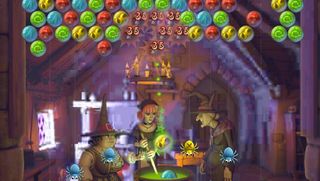
5. The bubble bobbled
For a while there, it was tough to go a day without hearing another CEO talk up social gaming's mindboggling potential. Established companies like Electronic Arts and Digital Chocolate whiffed a whole new audience. Developers, discouraged by slipping sales, realized that there's no pirating a game that's only valuable when it integrates with all our Facebook buddies.
But the established market just wasn't big enough to support all those heavy hitters. There weren't enough "whales" (a term used to refer to high-waging gamblers--or high-spending virtual farmers) to cover rising expenses. Simple, viral-minded games with the depth and meaningful interactions of a subway jostle somehow stopped being enough. Venture capitalists began to sweat at slowing growth from former sky-is-the-limit start-ups. Investors and employees jumped ship. The bubble burst.

6. People just want to wager
There's a reason that three of Facebook's five top-grossing apps (Zynga Poker, DoubleDown Casino, and Slotomania) are casino games: Folks want to gamble. Many online high rollers clearly don't care if they actually make money, since there's no cashing out the chips. But it's about as fun to bust at a virtual blackjack table as it is to bust at a casino's, so we may as well not leave the house.
Online gambling is still considered illegal by the US government, but Zynga went ahead and hired an expert in the field for an executive position. The company plans to push into international markets where it's permitted, and we bet our sweet patooties it won't be the only social giant to get aboard that money train. Why worry about all these weird farm metaphors when you can just let people play virtual video poker for a little bit of real cash?

7. Social's in a culture shift
Social games may be the only kind of game founded as much on business model as they are on mechanics. While most of the titles we talk about on GamesRadar are made for the profit of large businesses, they're also made by gamers who want other gamers to enjoy them. It was difficult to say that about many popular social games, which were largely designed to monetize active users to a whole new degree.
Mark Pincus, Zynga's CEO and founder, made sure his company was financially secure and independent at the outset by using any means necessary, even if that meant funneling users into scams. Zynga's success was a model for the industry's rush on social games. Even if the genre has moved on to more upfront means of squeezing dollars out of players (losing survey scams but keeping good old cash shops) and offers some high-quality experiences not to be found anywhere else, the stigma of that roguish mindset will be tough to shake.

8. The growth is on mobile
Smartphones are the smart bet for game creators: Market research group Strategy Analytics found that more than 1 billion of the devices were in use worldwide in the third quarter of 2012, a 47 percent boom year-over-year. People are eager to leave laptops behind and load up their stylish new handhelds with diversions they can play anywhere, and that's taken some serious wind out of Facebook gaming's sails.
Unfortunately, you wouldn't have known it by looking at social companies like Zynga, which somehow neglected to put its flagship title FarmVille 2 on iOS or Android. Even when it does, there's a good chance it will be a lesser experience divorced from users' hard-earned farms, as is the case in CityVille Hometown. If social gaming companies want to keep up with their market, they'd better hurry it up.
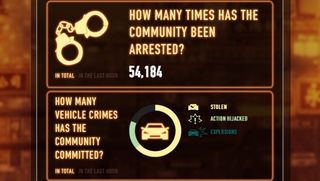
Expectations managed
The gold rush is over, but will social games turn into ghost towns? Not likely. People enjoy playing with their friends, so games that have baked-in social elements will always be welcome. Their influence is felt in even the most core titles, like the community stat-tracking bonanzas of Call of Duty Elite or Sleeping Dogs' Social Hub. But it's a good bet that social games as we knew them before will never again be as extravagantly huge, and as flagrantly anti-consumer. Maybe now that everybody's been a gamer for a bit, we all just want better games.
What do you think? Are social games changing for the better now that the climate's calmed down, or will they always be a racket? Let us know in the comments--if you need us, we'll be figuring out the conversion rate for FarmVille Farm Bucks to Angry Birds Super Seeds.

I got a BA in journalism from Central Michigan University - though the best education I received there was from CM Life, its student-run newspaper. Long before that, I started pursuing my degree in video games by bugging my older brother to let me play Zelda on the Super Nintendo. I've previously been a news intern for GameSpot, a news writer for CVG, and now I'm a staff writer here at GamesRadar.
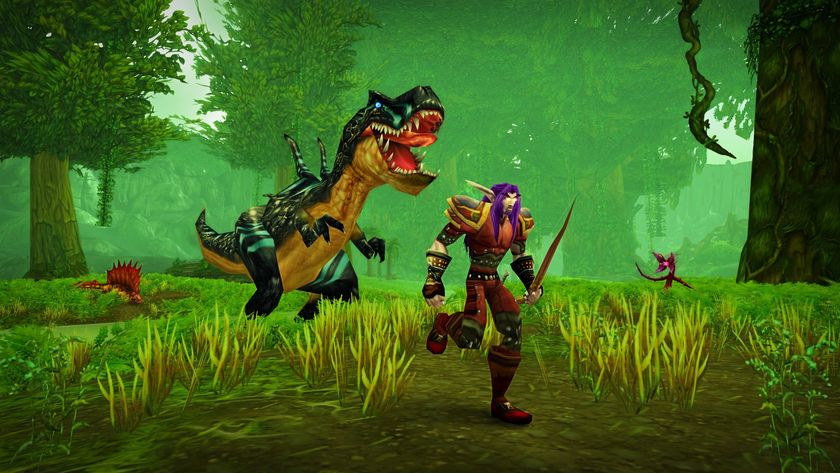
Former Ultima Online and Star Wars Galaxies dev says MMOs have "been in a rut for a long time" after World of Warcraft's popularity narrowed down "a much more diverse genre"
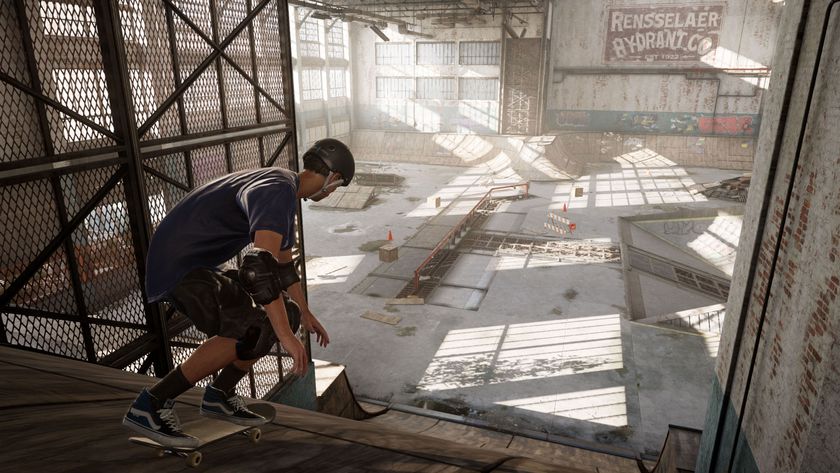
Tony Hawk's Pro Skater 3+4 rumors have just been upgraded from podcast mentions and Call of Duty map teasers to a full countdown on the official Activision website

Former Ultima Online and Star Wars Galaxies dev says MMOs have "been in a rut for a long time" after World of Warcraft's popularity narrowed down "a much more diverse genre"

Tony Hawk's Pro Skater 3+4 rumors have just been upgraded from podcast mentions and Call of Duty map teasers to a full countdown on the official Activision website
Most Popular





